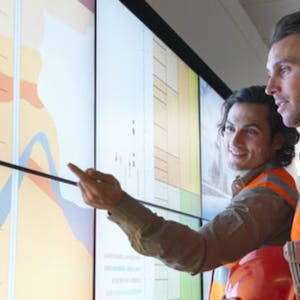Financing the development and evolution of infrastructure
About this Course
In this course, we will explore how debt and equity can be used to finance infrastructure investments and how investors approach these investments. We will discover the crucial importance of infrastructure in modern economies and the evolution of financing methods in the context of growing global needs. The course is divided into 5 modules lasting approximately 7 hours, spread over 5 weeks. We will cover the importance of infrastructure, public and private sources of financing, the evolution of infrastructure and project financing. We will also look at the increasing focus on sustainability and ESG (Environmental, Social, Governance) criteria. The course includes video lectures, readings and talks by expert guests. It is presented in an accessible and simplified format, suitable for a general audience, including high schools and new entrants to university. Available in Italian and English with subtitles, it is accompanied by materials in both languages.Created by: Università Bocconi

Related Online Courses
Knowledge of Geographic Information Systems (GIS) is an increasingly sought after skill in industries from agriculture to public health. This Specialization, offered in partnership with ArcGIS... more
Interested in learning how to solve partial differential equations with numerical methods and how to turn them into python codes? This course provides you with a basic introduction how to apply... more
In this course, you will explore the impact of generative artificial intelligence (AI) on society, the workforce, organizations, and the environment. This course is suitable for anyone interested... more
This is a self-paced lab that takes place in the Google Cloud console. In this lab, you will learn how to create a Data Fusion instance and deploy a sample pipelineCreated by: Google Cloud more
How can psychotherapy help people struggling with depression and stressful interpersonal life events? How do therapists facilitate effective management of interpersonal experiences such as... more








